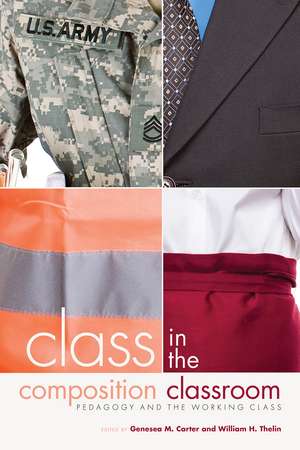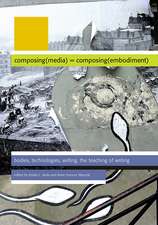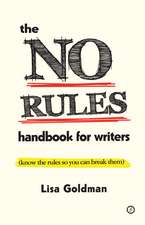Class in the Composition Classroom: Pedagogy and the Working Class
Editat de Genesea M. Carter, William H. Thelinen Limba Engleză Paperback – dec 2017 – vârsta ani
Class in the Composition Classroom considers what college writing instructors should know about their working-class students—their backgrounds, experiences, identities, learning styles, and skills—in order to support them in the classroom, across campus, and beyond. In this volume, contributors explore the nuanced and complex meaning of “working class” and the particular values these college writers bring to the classroom.
The real college experiences of veterans, rural Midwesterners, and trade unionists show that what it means to be working class is not obvious or easily definable. Resisting outdated characterizations of these students as underprepared and dispensing with a one-size-fits-all pedagogical approach, contributors address how region and education impact students, explore working-class pedagogy and the ways in which it can reify social class in teaching settings, and give voice to students’ lived experiences.
As community colleges and universities seek more effective ways to serve working-class students, and as educators, parents, and politicians continue to emphasize the value of higher education for students of all financial and social backgrounds, conversations must take place among writing instructors and administrators about how best to serve and support working-class college writers. Class in the Composition Classroom will help writing instructors inside and outside the classroom prepare all their students for personal, academic, and professional communication.
Contributors: Aaron Barlow, Cori Brewster, Patrick Corbett, Harry Denny, Cassandra Dulin, Miriam Eisenstein Ebsworth, Mike Edwards, Rebecca Fraser, Brett Griffiths, Anna Knutson, Liberty Kohn, Nancy Mack, Holly Middleton, Robert Mundy, Missy Nieveen Phegley, Jacqueline Preston, James E. Romesburg, Edie-Marie Roper, Aubrey Schiavone, Christie Toth, Gail G. Verdi
The real college experiences of veterans, rural Midwesterners, and trade unionists show that what it means to be working class is not obvious or easily definable. Resisting outdated characterizations of these students as underprepared and dispensing with a one-size-fits-all pedagogical approach, contributors address how region and education impact students, explore working-class pedagogy and the ways in which it can reify social class in teaching settings, and give voice to students’ lived experiences.
As community colleges and universities seek more effective ways to serve working-class students, and as educators, parents, and politicians continue to emphasize the value of higher education for students of all financial and social backgrounds, conversations must take place among writing instructors and administrators about how best to serve and support working-class college writers. Class in the Composition Classroom will help writing instructors inside and outside the classroom prepare all their students for personal, academic, and professional communication.
Contributors: Aaron Barlow, Cori Brewster, Patrick Corbett, Harry Denny, Cassandra Dulin, Miriam Eisenstein Ebsworth, Mike Edwards, Rebecca Fraser, Brett Griffiths, Anna Knutson, Liberty Kohn, Nancy Mack, Holly Middleton, Robert Mundy, Missy Nieveen Phegley, Jacqueline Preston, James E. Romesburg, Edie-Marie Roper, Aubrey Schiavone, Christie Toth, Gail G. Verdi
Preț: 336.56 lei
Nou
Puncte Express: 505
Preț estimativ în valută:
64.40€ • 67.38$ • 53.50£
64.40€ • 67.38$ • 53.50£
Carte tipărită la comandă
Livrare economică 03-17 aprilie
Preluare comenzi: 021 569.72.76
Specificații
ISBN-13: 9781607326175
ISBN-10: 1607326175
Pagini: 370
Ilustrații: 6 black and white illustrations
Dimensiuni: 152 x 229 x 25 mm
Greutate: 0.51 kg
Ediția:1
Editura: Utah State University Press
Colecția Utah State University Press
ISBN-10: 1607326175
Pagini: 370
Ilustrații: 6 black and white illustrations
Dimensiuni: 152 x 229 x 25 mm
Greutate: 0.51 kg
Ediția:1
Editura: Utah State University Press
Colecția Utah State University Press
Recenzii
“A real contribution to knowledge, in terms of theory of social class and working class, in terms of research on these subjects, and in terms of pedagogical practice. This is the perfect handbook for the new professor of writing.”
—James Zebroski, Professor of Rhetoric and Composition, University of Houston
“I’m grateful that Carter and Thelin have assembled these voices and nudged the conversation in these new directions.
—William DeGenaro, Rhetoric Review
“This book is an essential resource containing diverse voices, cutting-edge pedagogy, and calls for radical change in the way college composition is taught in America."
—Andrew Gallagher, H-Net Reviews
—James Zebroski, Professor of Rhetoric and Composition, University of Houston
“I’m grateful that Carter and Thelin have assembled these voices and nudged the conversation in these new directions.
—William DeGenaro, Rhetoric Review
“This book is an essential resource containing diverse voices, cutting-edge pedagogy, and calls for radical change in the way college composition is taught in America."
—Andrew Gallagher, H-Net Reviews
Notă biografică
Genesea M. Carter is associate director of composition at Colorado State University. Her work has been published in Open Words: Access and English Studies, the Journal of Teaching Writing, and Composition Studies.
William H. Thelin is professor of English at the University of Akron, where he teaches courses on critical pedagogy, research methods, writing, and other subjects. He is the co-chair of the Working-Class Culture and Pedagogy Standing Group of the CCCC and is also active in Rhetoricians for Peace. He co-founded Open Words and has published in College English, College Composition and Communication, Teaching English in the Two-Year College, Composition Studies, and other journals. He is the co-editor of Blundering for a Change: Errors and Expectations in Critical Pedagogy and author of Writing Without Formulas.
William H. Thelin is professor of English at the University of Akron, where he teaches courses on critical pedagogy, research methods, writing, and other subjects. He is the co-chair of the Working-Class Culture and Pedagogy Standing Group of the CCCC and is also active in Rhetoricians for Peace. He co-founded Open Words and has published in College English, College Composition and Communication, Teaching English in the Two-Year College, Composition Studies, and other journals. He is the co-editor of Blundering for a Change: Errors and Expectations in Critical Pedagogy and author of Writing Without Formulas.
Descriere
Class in the Composition Classroom considers what college writing instructors should know about their working-class students—their backgrounds, experiences, identities, learning styles, and skills—in order to support them in the classroom, across campus, and beyond. In this volume, contributors explore the nuanced and complex meaning of “working class” and the particular values these college writers bring to the classroom.










